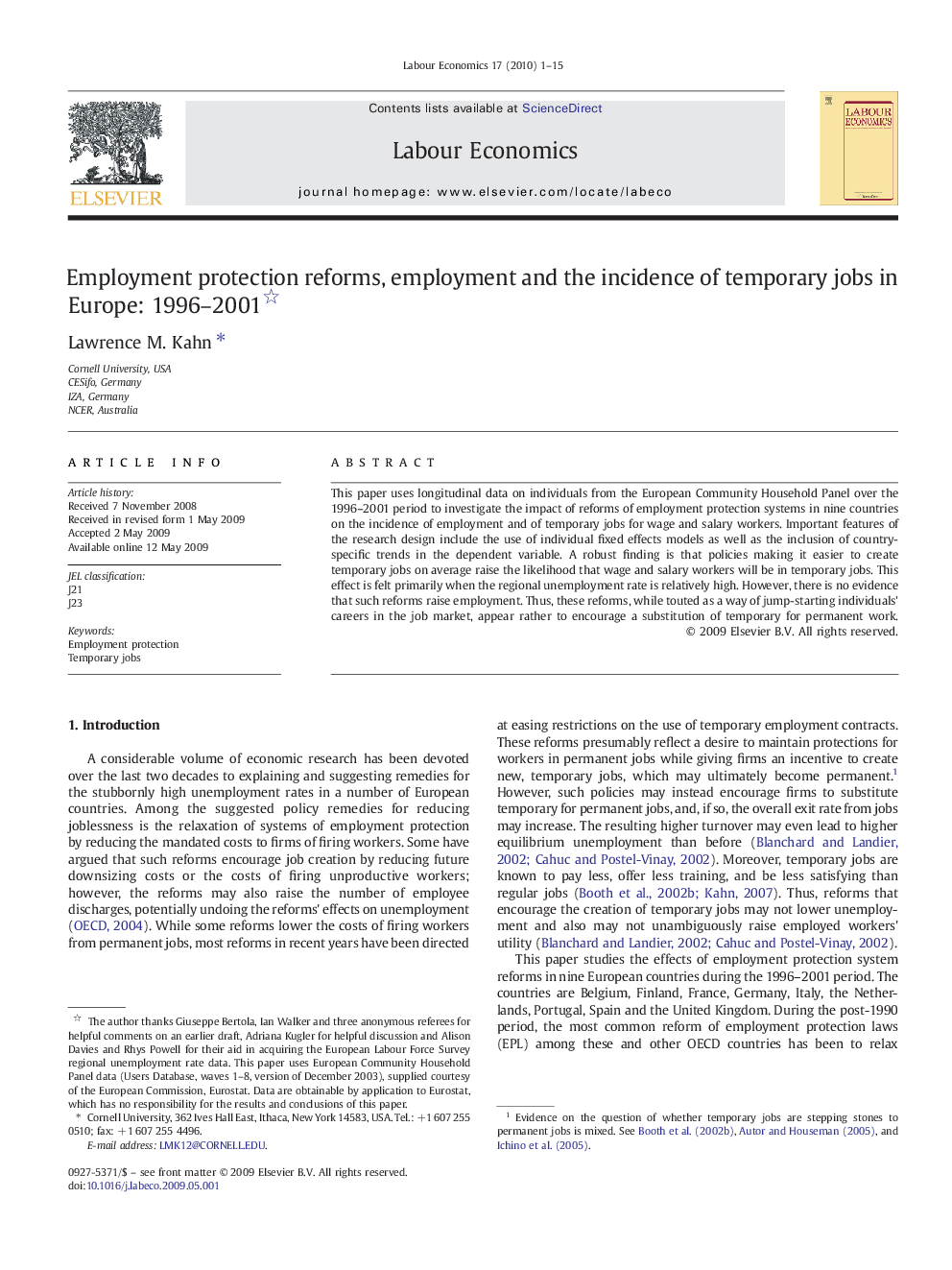| Article ID | Journal | Published Year | Pages | File Type |
|---|---|---|---|---|
| 971880 | Labour Economics | 2010 | 15 Pages |
This paper uses longitudinal data on individuals from the European Community Household Panel over the 1996–2001 period to investigate the impact of reforms of employment protection systems in nine countries on the incidence of employment and of temporary jobs for wage and salary workers. Important features of the research design include the use of individual fixed effects models as well as the inclusion of country-specific trends in the dependent variable. A robust finding is that policies making it easier to create temporary jobs on average raise the likelihood that wage and salary workers will be in temporary jobs. This effect is felt primarily when the regional unemployment rate is relatively high. However, there is no evidence that such reforms raise employment. Thus, these reforms, while touted as a way of jump-starting individuals' careers in the job market, appear rather to encourage a substitution of temporary for permanent work.
